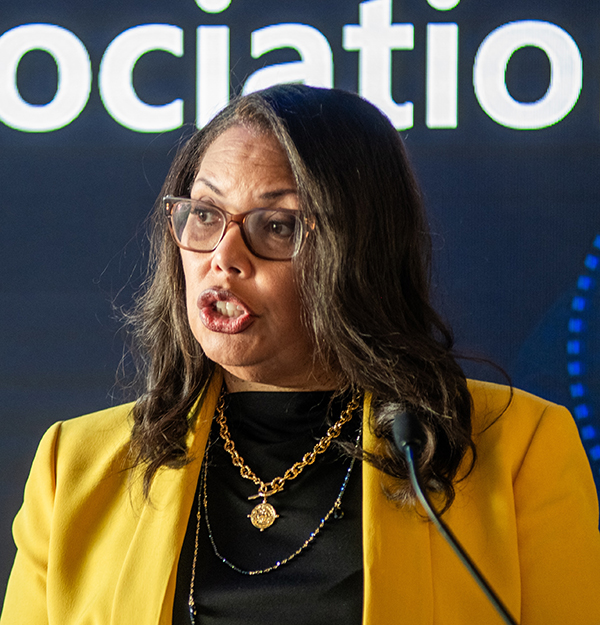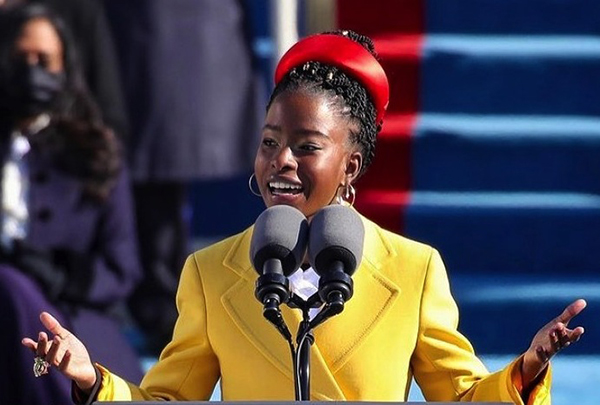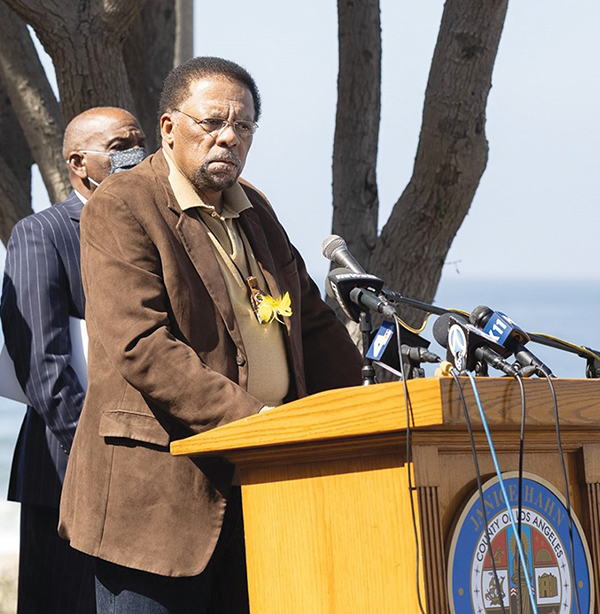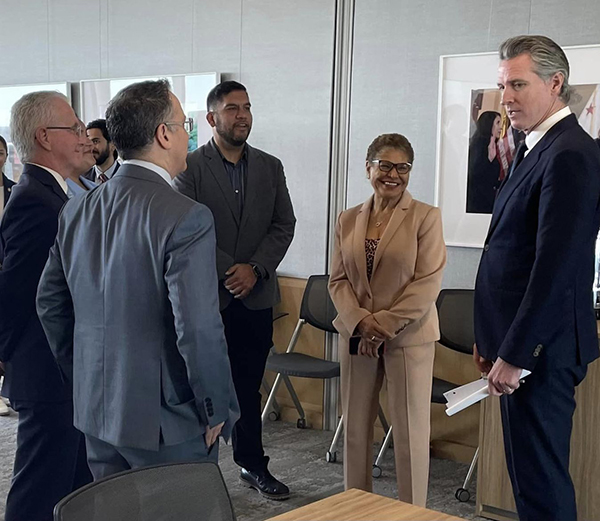New coalition tackles racial wealth gap

Black leaders seek to build pipelines for small businesses
Sarah R. Harris, president and CEO of the Black Business Association, speaks at the launch of the Greater Los Angeles Black Leaders Collective Oct. 22. The collective hopes to close racial wealth gaps, strengthen community power and shape how billions of dollars in economic growth will be shared.
Courtesy photo
By Stephen Oduntan
Contributing Writer
CRENSHAW — The room inside Chase Bank’s Crenshaw Community Center filled with the sound of applause as some of Los Angeles County’s most influential Black civic, business and nonprofit leaders rose to their feet on Oct. 22.
Against the glow of a massive screen bearing the Urban League logo, they marked a turning point months in the making — the formal launch of the Greater Los Angeles Black Leaders Collective.
What began as quiet, biweekly strategy sessions early this year has now become a countywide coalition determined to close racial wealth gaps, strengthen community power and shape how billions of dollars in economic growth will be shared.
The coalition — convened by the Los Angeles County Economic Development Corporation — brings together a powerhouse roster of leaders, including Sarah R. Harris of the Black Business Association, Cynthia Mitchell-Heard of the Los Angeles Urban League, Angela Gibson-Shaw of the Greater Los Angeles African American Chamber of Commerce, and Stephen Cheung of the county Economic Development Corporation. Framed as both a moral and economic imperative, the group’s mission is to ensure Black Angelenos are not afterthoughts in shaping the region’s economic future.
“The collective exists because our community should not have to fight for inclusion after plans have been made,” Harris told the crowd. “We must be integral to designing those plans from the start.”
Cheung pointed to the billions of dollars in economic activity tied to upcoming mega-events — including the 2026 soccer World Cup, the 2027 Super Bowl, and the 2028 Olympic and Paralympic Games — as a historic chance to reimagine who benefits from Los Angeles’ growth.
Gibson-Shaw called the launch “a commitment to collaboration, equity, and power,” adding that the coalition aims to build pipelines connecting Black residents to high-wage industries, strengthen nonprofit capacity and leverage collective influence to shape policy.
The coalition’s strategy rests on four pillars: economic mobility, direct relief, policy transformation, and measurable community impact. Jason Foster of Destination Crenshaw led a call-and-response exercise with attendees.
He said the framework was built “to move from promise to power, from conversation to coordination.” Through shared data and collective bargaining, the group aims to open procurement pipelines, expand access to capital for Black-owned businesses, and anchor workforce training in high-growth industries such as health care, entertainment, logistics, and advanced manufacturing.
The collective, leaders emphasized, didn’t emerge overnight. Its foundation was laid over months of strategy sessions — a process Kendall Turner described as “the heartbeat of this collective.”
“We are not a think tank, we are a do tank,” Harris said. “We must be at the table as architects, as advocates, and as owners of our future.”
Speaking with The Wave after the event, Harris and other coalition members outlined how they plan to translate their launch-day promises into measurable outcomes. Asked what single goal they want the public to hold them accountable for in the first 12 months, Harris pointed to transparency and engagement.
“We want to be able to hear and understand from people, to engage with us so that we can be on target with what we are aiming to do,” she said.
The coalition is prioritizing clean energy, bioscience and entertainment, Harris said, while using policy frameworks to ensure equitable resource distribution.
“Of course, it’s through policy — being able to say this is how it’s supposed to work and making sure we’re the architects of those policies,” she added.
A public scorecard will track progress on procurement, workforce training, and investment commitments.
“Data is paramount,” Harris said. “We want to be able to put out a scorecard — who’s doing what, where the discrepancies are, and how we can make it better.”
Robert Saucedo, one of the coalition’s founding members, stressed that the initiative is about unapologetic Black leadership.
“We’re unapologetically taking Black leadership — those who have been in positions of power — onto a single platform to expand this network in a way that puts us first and foremost at the table, helping design the menu rather than being on the menu,” Saucedo said.
Gibson-Shaw emphasized that the coalition is not just for major institutions.
“They can join us on our website and social media platforms,” she said. “This is a collective — and we want people to actually be part of it.”
On small business support, she pointed to procurement readiness and technical assistance programs, while underscoring that the coalition’s role is to amplify existing Black-led work, not replace it.
“It’s about supporting the underlying work already being done in the community,” she said. “We want to infuse more power and resources to help those organizations scale.”
Saucedo added a sharper framing of the coalition’s economic vision.
“The idea isn’t that anyone is going to lord over anyone,” he said. “The idea is that we make people as good as we are or better. And the most important thing is that when we talk about small business or other nonprofits, we go from crumbs to pieces. That’s what we’re stopping.”
Storytelling, Harris added, will also be a key tool in shaping narratives around Black communities in Los Angeles.
“There’s so much being done to try to erase our history, restrict our voice, and minimize our narrative,” she said. “We’ll continue to craft stories and work with media partners to highlight and celebrate the contributions of Black Angelenos.”
Asked what role the media should play in that process, Harris was direct: “We want to partner with media to highlight what’s happening in our communities,” she said.
“And yes — hold us accountable while we build.”
Stephen Oduntan is a freelance writer for Wave Newspapers.





